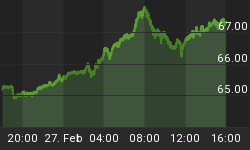One of the things that separate the "rich" world from the rest of humanity is the expectation that a lifetime of work is rewarded with a comfortable retirement. Whether through an employer's pension or 401(K), or government plans like Social Security and Medicare, citizens of the US, Canada, Europe and Japan take it for granted that some baseline income and healthcare benefit is out there waiting for us when we need it. And we plan our saving and investing accordingly, presumably putting away less than we would if our retirement had to be completely self-funded.
So imagine our surprise when it turns out that pension plans, from company-specific to federal, don't have nearly enough money to keep their promises. Consider this story on private sector pensions from yesterday's Wall Street Journal:
Pension Trusts Strapped
Retirement trust funds created to cover billions of dollars in medical costs for unionized workers and their families are running short, forcing the funds to cut costs, trim benefits, and ask retirees and companies to pony up more cash.The biggest such fund--a trio of United Auto Worker trusts covering benefits for more than 820,000 people, including Detroit auto-maker retirees and their dependents--is underfunded by nearly $20 billion, according to trust documents filed with the U.S. Labor Department last month.
The funds, known as VEBAs, or voluntary employee beneficiary associations, are being hit by rising medical costs and poor investment performance. Their funding comes in part from company stock, rather than just cash payments, making them vulnerable to the market's volatility.
In Pittsburgh, the United Steel Workers union is laboring to provide benefits to tens of thousands of employees covered by more than 30 VEBAs. "No matter how good your investment performance is, you are not going to be able to keep up with health-care inflation," says Tom Conway, vice president of the USW. "The trustees are having to take a serious look at increasing premiums, and the retiree contribution has to be bigger."
According to VEBA trust officials, the funds for all autos averaged a 9.7% rate of return in 2010. They decline to say how the funds have performed in 2011 but, in response to written questions, they say the fund has adopted a more conservative assumption of 7% going forward. At GM, the fund currently has total assets of $33.23 billion and total benefit obligations of $44.68 billion, resulting in an $11.4 billion, or 26%, shortfall.
Some thoughts
"The biggest such fund--a trio of United Auto Worker trusts covering benefits for more than 820,000 people, including Detroit auto-maker retirees and their dependents--is underfunded by nearly $20 billion, according to trust documents filed with the U.S. Labor Department last month." ... How exactly does a pension plan get underfunded by $20 billion? Don't people notice when the underfunding hits, say, $20 million? And isn't someone obligated -- on pain of jail time -- to adjust the cash flows to bring them back into balance? It seems like a number this big would take a long time to accrue, which means a lot of people over a lot of years have to violate their fiduciary if not legal duties.
Clearly there was a scam being run, and the mechanism was the projected rate of return. As stocks, real estate and bonds all soared during the credit bubble decades, pension funds got addicted to 10% annual returns and didn't seem to recognize that those returns would have to revert to mean eventually. As a result they didn't adjust their expectations downward. So now that stocks have literally returned zero for an entire decade and bonds by definition can't earn more than a few percent a year, these pension funds are stuck with widening gaps between what they owe and what they'll have down the road. And they're surprised!
"...the fund has adopted a more conservative assumption of 7% going forward." Pension funds hold the majority of their assets in bonds, and US ten-year Treasuries now yield 2%. So how do you get to 7% if half your assets are generating a third of that rate?* The answer is you hope for massive inflation to send stock and real estate prices through the roof. But of course this raises beneficiary living costs and diminishes the real value of future benefits. Looks like a lose-lose from here.
As is by now pretty well known, Social Security and Medicare are in even worse shape, with unfunded liabilities totaling somewhere north of $50 trillion. Their cutbacks will dwarf those of the above private plans.
The message to First World beneficiaries: Don't expect any plan, government or private, to carry you in comfort through 30 years of retirement. Like most of the rest of humanity, you're on your own.
* Of course, had a hypothetical pension fund loaded up on gold and silver a decade ago, they'd be massively overfunded today and would be raising benefits rather than cutting them.















